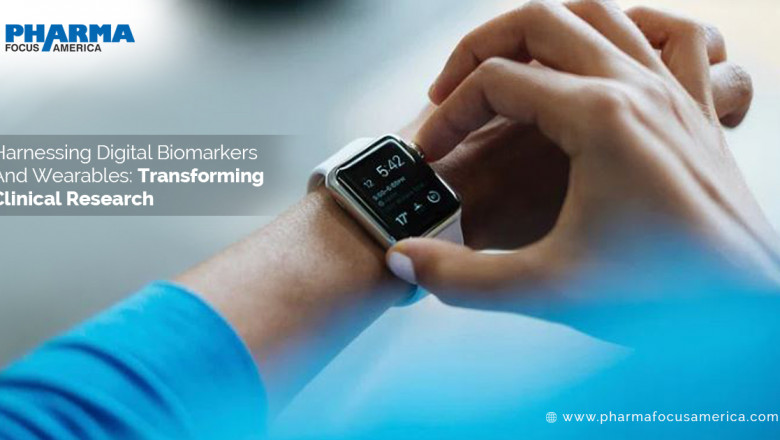views
Harnessing Digital Biomarkers and Wearables: Transforming Clinical Research
Digital biomarkers and wearables are revolutionizing clinical research by providing real-time data on patients' health. They offer insights into physiological and behavioral changes and improve trial design with remote monitoring, but face challenges like data analysis and ethics. Successful studies showcase their potential for personalized healthcare and predictive interventions.

Introduction
In today's technologically advanced world, the use of digital biomarkers and wearable devices is revolutionizing the field of clinical research. These innovative tools provide researchers with a wealth of real-time data that was previously inaccessible. By monitoring a range of physiological and behavioral measurements such as heart rate, sleep patterns, physical activity, and even mood, these digital biomarkers offer valuable insights into a patient's health and well-being.
The Importance of Digital Biomarkers in Advancing Medical Research
Digital biomarkers play a crucial role in advancing medical research by providing researchers with objective and accurate data about a patient's health. Unlike traditional methods that rely on self-reported information, digital biomarkers offer real-time monitoring and continuous data collection. This allows for a more comprehensive understanding of a patient's health status, enabling researchers to identify trends, patterns, and potential correlations.
One of the key advantages of digital biomarkers is their ability to provide insights into a patient's physiological and behavioral changes over time. For example, by monitoring heart rate variability, researchers can gain valuable information about stress levels and overall cardiovascular health. Similarly, tracking sleep patterns can help identify sleep disorders and their impact on overall well-being.
Digital biomarkers also offer the opportunity to collect data remotely, reducing the burden on patients and improving convenience. This remote monitoring capability is particularly beneficial for individuals with chronic conditions or those who live in remote areas. It allows researchers to gather data in real-world settings, providing a more accurate representation of a patient's daily life and experiences.
Types of Wearables Used in Clinical Research
There is a wide range of wearable devices utilized in clinical research, each designed to capture specific types of data. Some of the most commonly used wearables include:
Fitness Trackers: These devices, commonly worn on the wrist, monitor physical activity levels, heart rate, and sleep quality. They provide valuable insights into a patient's overall fitness and lifestyle habits.






















Comments
0 comment